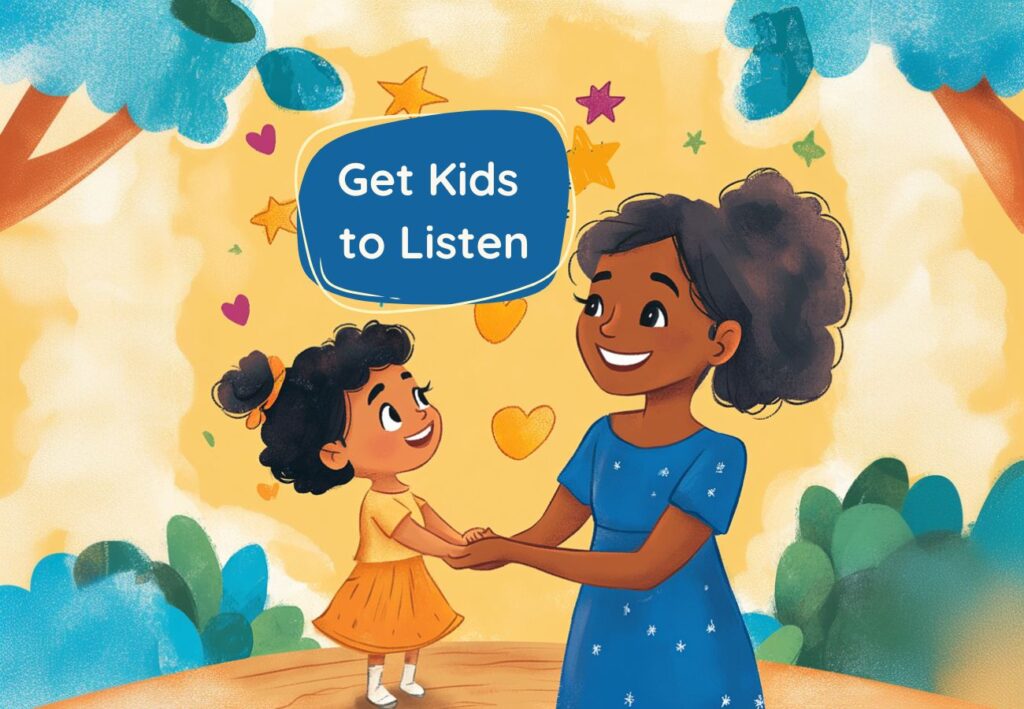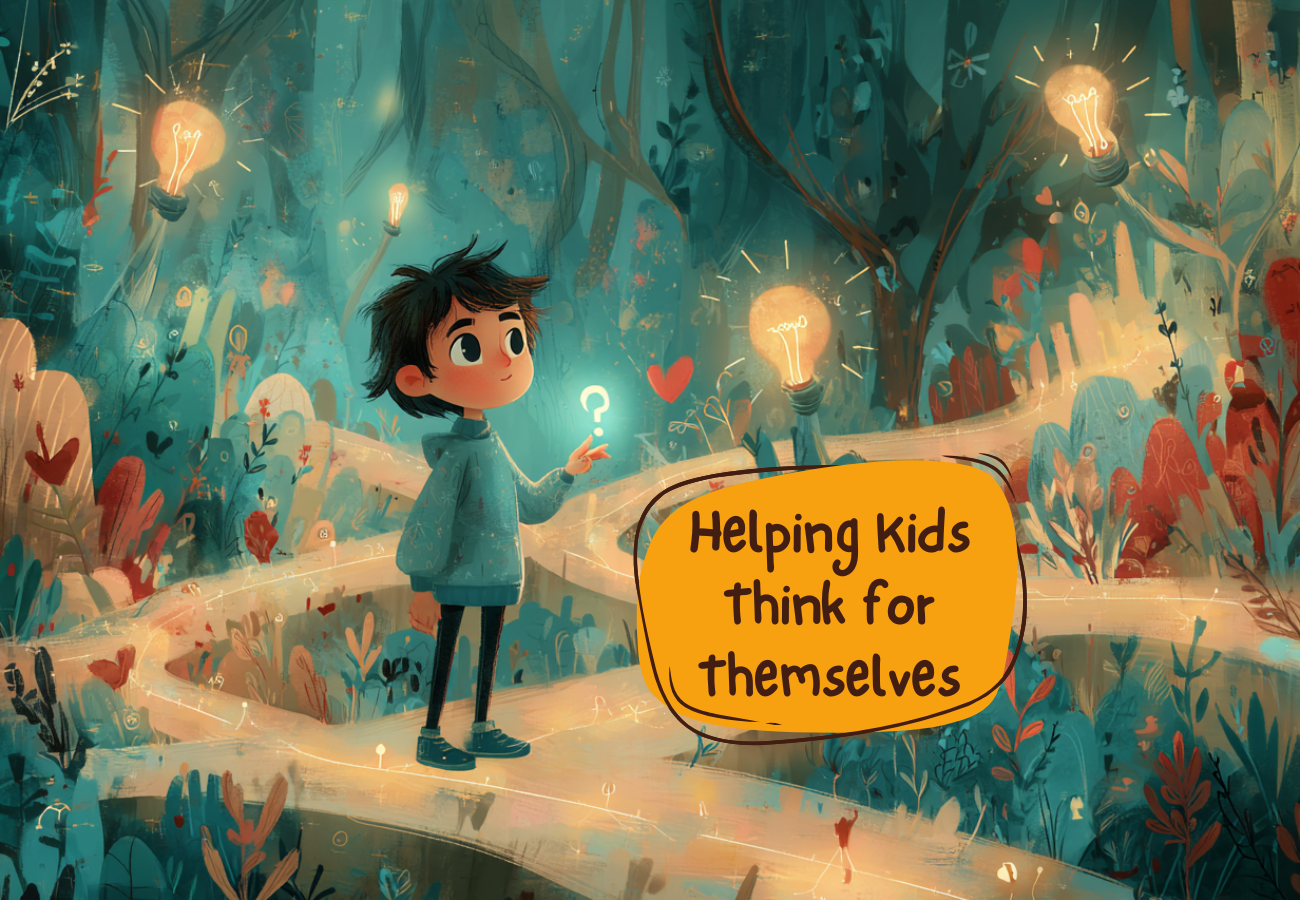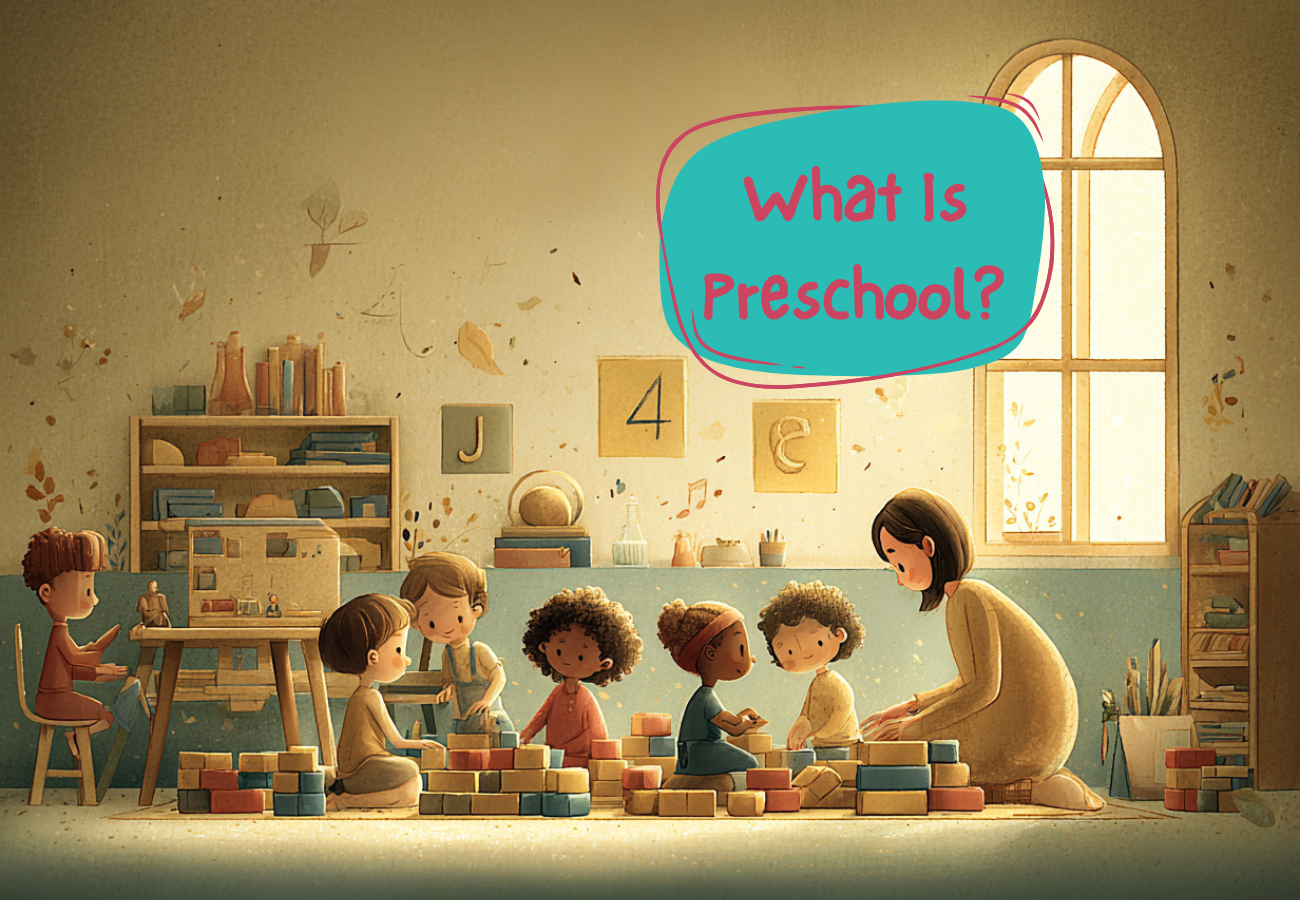10 Positive Ways to Get Kids to Listen the First Time

Ever feel like you’re talking to a brick wall when trying to get your toddler or 6-year-old to listen? You’re not alone. Many parents struggle with how to get kids to listen the first time without yelling or repeating themselves endlessly. The good news? Listening is a skill that can be taught with the right strategies. In this article, you’ll discover 10 respectful and effective ways to make kids listen — from preschoolers to kindergarteners and beyond.
1. Get on Their Level . Want to know how to make a 3-year-old listen? Start by getting down to their eye level. This simple act shows respect and ensures they feel seen and heard. When you speak face-to-face, children are more likely to pay attention and understand what you’re saying.
2. Say Their Name First Before giving an instruction, say your child’s name and wait for eye contact. Whether you’re dealing with a 4-year-old or a 7-year-old, this helps break distractions and prepares their brain to listen.
3. Use Fewer Words Young children, especially toddlers and preschoolers, can get overwhelmed by too many words. Keep your instructions short and clear. Instead of saying, “Please go to your room and pick up all the toys, then come set the table,” try, “Pick up your toys now.”
4. Make It Fun If you’re wondering how to get a 6-year-old to listen, turn your request into a game or challenge. Try saying, “Can you pick up the toys before the timer rings?” Kids respond better when the task feels like play.
5. Offer Choices When kids feel in control, they’re more likely to cooperate. Offer two acceptable choices: “Do you want to brush your teeth first or put on pajamas?” This strategy works wonders for toddlers and older children alike.
6. Follow Through With Calm Consistency What to do when kids don’t listen? Calmly follow through with consequences. If you’ve said it’s time to leave the park in 5 minutes, stick to it. Consistency builds trust and respect.
7. Use Positive Language Instead of saying, “Don’t run,” try, “Please walk.” Positive instructions are easier for young minds to follow. Plus, they create a more encouraging tone.
8. Create Routines and Signals Predictability helps kids know what to expect. Establishing routines —especially in the morning or bedtime — reduces the need for constant reminders. Visual charts or songs can help preschoolers and kindergarteners stay on track.
9. Model Good Listening Children learn by example. Show them how to listen by giving them your full attention when they talk. Put away your phone, make eye contact, and respond thoughtfully.
10. Connect Before You Direct Before asking your child to do something, take a moment to connect. A quick hug, a smile, or a shared laugh can go a long way. When kids feel connected, they’re more willing to cooperate.
Bonus Tip: Use “My Superpower Books” Teaching listening skills is easier with engaging stories. “My Superpower Books” introduces kids to emotional intelligence, respect, and the power of listening — all in a fun, relatable way. It’s a great tool for parents and teachers looking to build character from the inside out.
Helpful Resources
More from Alicia Ortego: How to Teach Kids to Read
Learning how to get kids to listen doesn’t have to mean raising your voice or feeling frustrated. By using respectful, consistent, and engaging strategies, you can teach your child to listen the first time. Try these tips, share the article with fellow parents, and don’t forget to explore our My Superpower Books for more character-building fun. Got your own listening tip? Leave a comment below!
More articles

Helping Kids Think for Themselves — Gently and Without Pressure
Independent thinking is the ability to look at a situation, ask questions, form opinions, and make choices with confidence. Kids who think for themselves tend to feel steadier in their daily lives. They trust their thoughts and can speak up even if others see things differently. Parents and teachers often want this skill for kids, […]

The Impact of Color and Texture on Children’s Emotions, Behavior, and Learning
Children don’t just see their environment — they absorb it. Every color, every texture, and every visual detail around them quietly shapes the way they focus, relax, behave, and even understand their own emotions. While adults often adapt to a space automatically, children respond to it instantly and instinctively. That’s why creating a supportive environment […]

What Is Preschool and Why It Matters for Early Development
Choosing the right preschool is one of the most critical decisions parents make in shaping their child’s early development. In today’s evidence-based educational climate, early childhood education is recognized not merely as preparatory schooling, but as a scientifically validated foundation for cognitive, emotional, and social growth. High-quality programs such as Little Scholars NYC, an established […]



